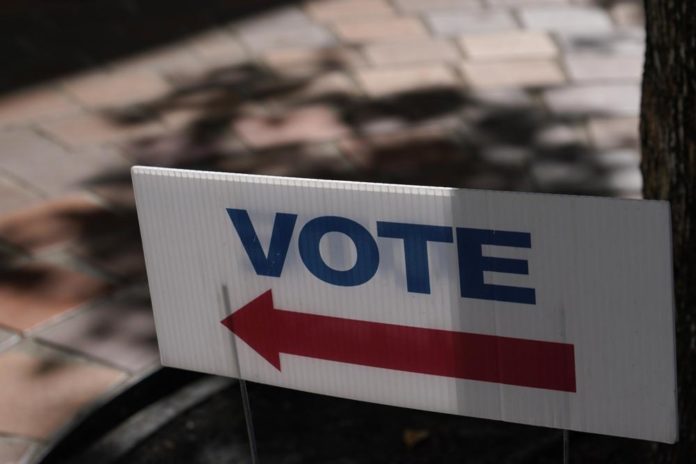
Arizona voters who have been slogging through ballots that include a slew of congressional and statewide races are also considering 10 ballot measures — all but two having been put on the ballot by the Republican-controlled Legislature.
They include a measure boosting the identification needed for both mail-in and in-person voting, three that would make it harder to pass voter initiatives or change their terms, and a question on whether young immigrants should qualify for in-state tuition.
Others include a statewide sales tax to fund rural fire districts and a measure that would allow business property taxes to be cut.
The two citizen initiatives made the ballot despite legal challenges to their qualifying signatures. One would require more campaign finance disclosures and the other would limit interest on medical debt and increase the amount of assets shielded from bill collectors.
Proposition 209 is the voting measure. If approved, it would require people who mail in ballots to provide additional identification on top of their signature on the ballot envelope. The referendum also changes how in-person voters are allowed to prove their identity by eliminating the ability to show a non-picture ID along with a utility bill, for instance. In all cases, voters already must prove their identity and citizenship when registering to vote.
The three measures targeting initiatives were placed on the ballot by Republican lawmakers who openly oppose the process that allows voters to bypass the Legislature to pass laws. Recent examples include boosting the minimum wage and legalizing marijuana.
Proposition 128 would free the Legislature from the Voter Protection Act’s ban on changing laws passed by initiative if any part of the measure is found by the state Supreme Court or U.S. Supreme Court to contain illegal or unconstitutional language. Currently, only that portion would be stricken, but if the referendum passes lawmakers could make wholesale changes or even repeal such laws.
Proposition 129 would limit initiatives to a single subject and require that all major parts of an initiative be explained in the title, and Proposition 132 would raise the threshold from a simple majority to 60% of the vote to pass any ballot measure that imposes a fee or raises tax.
At least two ballot measures this year — one that would raise taxes for rural fire districts and another that would limit interest and make other changes to debt owed by Arizonans — would need 60% of voter support to pass under terms of the proposal.
Proposition 211 is the citizen initiative that seeks to shine a light on so-called “dark money” that anonymous donors funnel through campaigns or organizations to support or attack candidates or ballot measures. Former Democratic Attorney General Terry Goddard is among those who have pushed for the change for years. It would require any organization spending more than $5,000 to identify all donors, with big penalties for failing to do so.
Proposition 209 is backed by the union-supported progressive group Healthcare Rising Arizona. It would raise the amount of assets shielded from bill collectors and would limit interest rates on medical debts, and increase the amount of cash that can be kept from $300 to $5,000.
The rest of the measures also were put on the ballot by the Legislature:
Proposition 310 boosts the sales tax by 1/10 of a cent statewide to fund rural fire districts. Backers say local property taxes in areas outside of bigger cities that can fund their own fire services fall short of what’s needed for a modern department.
Proposition 131 creates a lieutenant governor who would run on a slate with each party’s candidate for governor. They would be next in line if the governor leaves office for any reason and would oversee the department of administration, which handles state contracts, hiring and firing.
Proposition 308 would allow immigrants who went to high school in the state for two years to get in-state college tuition regardless of their immigration status. Aimed at so-called Dreamers, the measure has broad backing from the business community. At least 18 states have similar rules on in-state tuition for young people.
Proposition 130 restores a property tax exemption for disabled veterans that was ruled unconstitutional and exempts some business personal property and stocks of raw materials from property tax.
Republished with the permission of The Associated Press.














